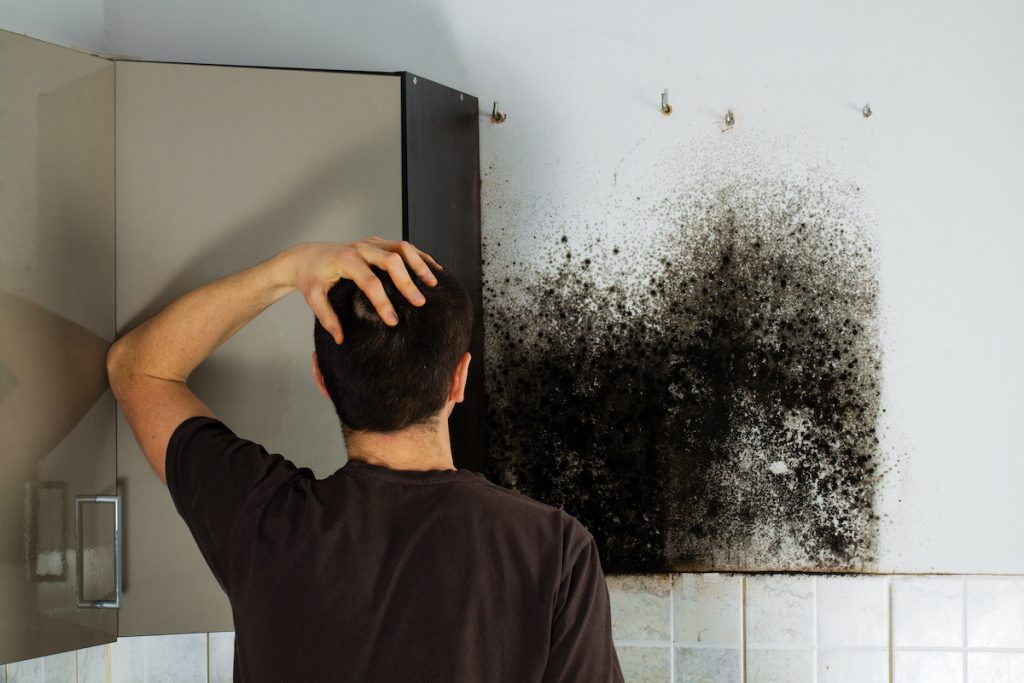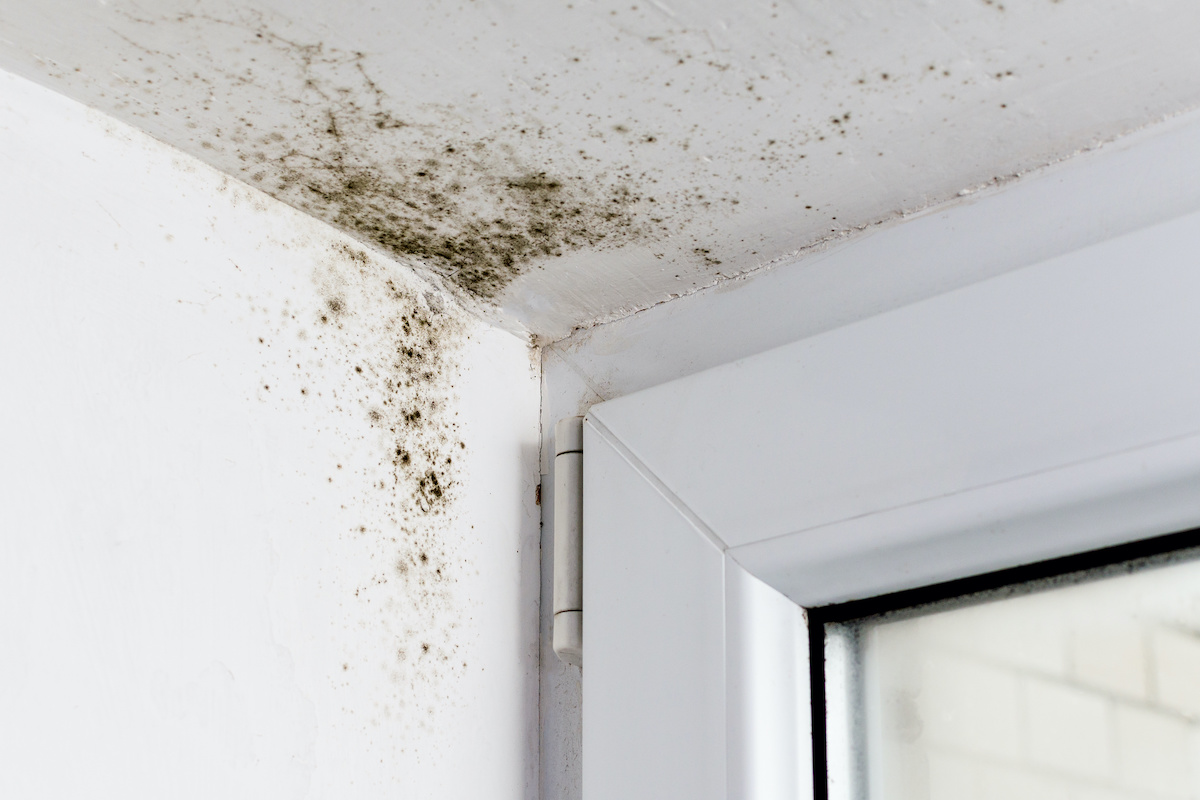Water damage can be a nightmare for any home or workplace. Bad enough that the unwanted water can not only damage your home’s interior walls, ceilings, and floors, but it can also wreak havoc on your furnishings and personal possessions.
The aftermath of water damage can also be a long-term problem that affects your home’s safety and the health of you and your family.
In this article, we’ll discuss some of the many types of mold that can grow in your home as a result of water damage.
When wood, drywall, concrete, and other building materials get wet and stay wet for more than a few hours, they become a breeding ground for millions of different types of organisms.
The vast majority of these lifeforms are entirely harmless and so small that they’re never even seen. One type, though, can turn your home into a health hazard: mold.
What is Mold ?
Before we start to talk types of Mold, what is Mold? Mold is a common and often troublesome problem in homes that have experienced water damage. In Denver CO, where the climate can be humid and rainy seasons are prevalent, mold growth can be a significant issue.
Mold not only damages property but also poses health risks, making it essential to understand the types of mold that can thrive in water-damaged homes.
This comprehensive guide will discuss four common types of mold found in such environments: Stachybotrys chartarum (Black Mold), Aspergillus, Cladosporium, and Aspergillus. Each type will be explored in detail, including their characteristics, health effects, and prevention methods.
Stachybotrys atra (Black Mold) | 4 Types of Mold
This species is the most feared common mold, responsible for the vast majority of mold-related severe health problems and deaths. While it’s commonly referred to as “black mold,” Stachybotrys can be greenish, grey, or even orange in tint.
It’s a slimy mold that usually looks a bit like tar. In addition to allergies and other problems caused by breathing in the spores from black mold growth, the fungus also releases some toxic chemicals called mycotoxins that can cause severe respiratory and neurological conditions and other significant health problems.
Black mold usually hides inside your walls, so it is notoriously difficult to detect. If you suspect your walls might be infested, it is best to contact a professional because removing the mold requires respirators, personal protective equipment, and other specialized mold safety equipment.

Cladosporium | 4 Types of Mold
More commonly found on mineral surfaces like tile, concrete, and drywall or furniture and fabrics, Cladosporum starts as tiny black, yellow, or green dots that grow until they merge into a large patch of brownish-black and olive-green growth. Breathing in Cladosporium spores can cause severe allergies and asthma in people with a sensitivity to molds.
Cladosporium most often appears in bathrooms, sinks, and bathtubs. It can also be found on damp furniture and carpets, especially those that suffered water damage and weren’t dried well.

Aspergillus | 4 Types of Mold
While typically harmless to most people, the spores of Aspergillus molds can be dangerous when inhaled by people with lung disease or a weakened immune system. The spores can cause infections in the lungs and other organs that these individuals may not be able to fight.
While Aspergillus is also black, it has white and yellow spots that make it easily distinguishable. This variety is not as toxic as most others, and a lot of people can breathe in spores without having any symptoms.

Alternaria | 4 Types of Mold
Alternaria grows thick and has an almost velvety surface that sometimes has long, hairlike projections. While more common in the outdoors, Alternaria can thrive inside a home’s basement, crawlspace, or attic and can cause severe respiratory distress for asthma and allergy sufferers.
How do I know which type of mold my home has?
If you can see the mold, you can usually identify it by its appearance, and there are dozens of sites online with photos of different molds that you can compare. Molds don’t always grow out in the open, however, and you may need to rely on some other cues to tell you that your home has developed a mold problem:
- Smell: Most molds will put off a musty or even a foul odor like rotting vegetables.
- Dust: When molds release spores, your home can be filled with persistent, musty-smelling dust that is hard to get rid of.
- Health effects: If you and your family or people visiting your home begin to show allergy or asthma symptoms that clear up when they leave, that may indicate a mold problem.
Addressing Any Type of Mold Issues in Denver, CO’s Homes Call PuroClean of Lansdale
- Climate Considerations
Denver, CO’s climate is characterized by a humid continental climate, with hot, humid summers and cold winters. The abundant rainfall throughout the year increases the risk of mold growth. Homes in this area should be particularly vigilant about moisture control to prevent mold issues.
- Cultural Practices
In Denver CO , homes built with traditional materials like wood and plaster, as well as modern homes with concrete and brick, can be susceptible to mold if not properly maintained. Understanding the materials used in your home can help in tailoring mold prevention strategies.
- Health Infrastructure
Access to healthcare can vary across Denver, Colorado. Therefore, preventing mold-related health issues through proper home maintenance is crucial. Regular health check-ups can help detect and address mold-related illnesses early.
Conclusion
Mold growth in water-damaged homes is a significant concern in Denver, Colorado due to the health risks and property damage it can cause. Understanding the different types of mold—such as Stachybotrys chartarum (Black Mold), Aspergillus, Penicillium, and Cladosporium—and their characteristics, health effects, and prevention methods is essential for maintaining a healthy living environment.
By controlling moisture levels, ensuring proper ventilation, and promptly addressing water damage, residents of Denver Colorado, can effectively prevent mold growth and safeguard their homes and health. Regular maintenance and awareness are key to managing this pervasive issue, ensuring a safer and healthier living space for all.
Why Choose Property Doctors Denver & Colorado Springs for Your Water Damage and Mold Remediation Needs?
When faced with water damage and potential mold growth, choosing the right restoration company is crucial. Here’s why Property Doctors Denver & Colorado Springs stands out as your trusted partner in the Denver metropolitan area, including Arvada, Colorado Springs, Littleton, and Westminster:
- Local Expertise: We are a locally owned and operated company with extensive experience serving Denver and surrounding areas. We understand the unique challenges associated with water damage in our region, from seasonal weather patterns to specific building materials commonly used in our communities.
- Fast Response & 24/7 Availability: Water damage emergencies don’t wait for convenient hours. We offer 24/7 emergency response to minimize further damage and get the restoration process started swiftly. Our prompt response time ensures your property suffers less and recovers faster.
- Highly Trained & Certified Technicians: Our team comprises certified and highly trained water damage restoration technicians. They possess the necessary skills and knowledge to assess the situation effectively, develop a customized remediation plan, and execute the job efficiently and safely.
- Advanced Equipment & Technology: We invest in cutting-edge technology and equipment to ensure a thorough and efficient remediation process. This includes advanced drying equipment, industrial-grade dehumidifiers, and state-of-the-art mold detection tools.
- Insurance Navigation & Hassle-Free Claims: We understand the complexities of insurance claims. Our team will work directly with your insurance company to streamline the claims process and ensure you receive the maximum coverage for your restoration needs.
- Open Communication & Transparency: We believe in clear communication throughout the remediation process. Our team will keep you informed of every step, answer your questions promptly, and address any concerns you may have.
- Commitment to Customer Satisfaction: Your satisfaction is our top priority. We are dedicated to exceeding your expectations by providing exceptional service, high-quality workmanship, and a commitment to restoring your property to its pre-damage condition.
Protect Your Investment & Restore Your Peace of Mind
Don’t let water damage and potential mold growth overwhelm you. Contact Property Doctors Denver & Colorado Springs today at (888) 456-0911 for a free consultation. We’ll be there to guide you through the restoration process and ensure your property is restored quickly, safely, and efficiently.
